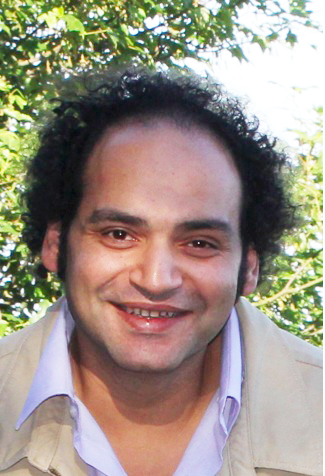Various issues have occupied considerable space in Egyptian columns. While some commentators criticise the staunch determination of Salafis to impose their own interpretation of Shari’a, others reject the sympathy expressed by some of Egypt’s intelligentsia with the alleged anti-Islamist coup d’état in Tunisia. The incident of the brutal detainment and humiliating treatment of the political activist Taqadum Al-Khatib sparked anger against ongoing police brutality.
The Islamist movement can get better through competition and not through a coup-d’état
Emad Al-Din Hussein
Al-Shorouk News
Hussein recalls an infamous statement made by the former Israeli Prime Minister Yitzhak Rabin, when he wished waking up one day to find the Gaza Strip swallowed by the sea. He draws the parallel between Rabin’s mentality in dealing with the Palestinians, and the way some of Egypt’s intellectual vanguard view the Islamist movement.
It became alarming to Hussein to observe an overwhelming contentment among those who oppose political Islamism, following the rumours of an alleged coup d’état against the Islamist Ennahda party in Tunisia.
Hussein warns that trading off a nascent democracy, albeit led by Islamists, for military rule is no different than championing the Turkish military in its 1980 coup d’état against Islamists. He predicts a similar fate to that of Algeria following the military coup of the early 1990’s, which overthrew the democratically-elected Islamic Salvation Front. This coup was supported by the francophone elite, and sparked a hideous civil war that left hundreds of thousands of victims.
The sole means that Hussein sees leading to the evolution of the Islamist movement is through self-renewal from within political Islamism itself, accompanied by an opposition that makes democracy and a civil state its priorities.
The Revolution is on TV
Mohamed Salmawi
Al-Masry Al-Youm
Commenting on the domination of the Muslim Brotherhood and President Morsy, Mohamed Salmawi criticises the interference of the Shura Council in the press. He compares it to the policies adopted by Mubarak’s regime to silence dissident voices. He also denounces the resumption of normalising diplomatic relations with Israel. He rejects most the continuation of mistreatment and torturing of Egyptians by the police, as if Habib Al-Adli was still in office at the head of the Ministry of Interior.
Salmawi recounts the incident of the university professor and political activist Taqadum Al-Khatib. On his way to the southern city of Qina, the bus he was taking was stopped at the police checkpoint at Naqada village. An officer stepped onto the bus and asked all passengers to present their national ID cards, while hurling insults at Al-Khatib.
When the latter expressed his disagreement with these practices after the revolution, the officer replied, “The revolution was only on TV,” and dragged him violently to the Naqada police station, where he was beaten, insulted, and threatened to be tried with the charge of holding narcotics. What saved Taqadum is that he knew senior officials who got him out of detainment. Salmawi holds president Morsy responsible for the ongoing police brutality.
The Constitution, the commodity of the Salafis
Amr Hamzawy
Al-Watan News
Hamzawy analyses Salafi tactics. After initially adopting a discourse that placed disobedience to the ruler on a par with disobeying God, Hamzawy criticises the post-revolution Salafi discourse based upon making Egyptians fearful of breaching Shari’a. This tactic proved successful in founding influential Salafi political parties, which secured considerable parliamentary seats.
The ongoing debates surrounding the constitution draft have had their own share of the Salafi fear-mongering techniques, which manifested in the staunch determination to set a barrier between the constitutional text and the preservation of personal and public rights, along with the founding of a democratic state.
Hamzawy’s observation is that too much of the Salafi outcry has been directed to superficial issues, and reflected a backward interpretation of religious texts. While nothing has been heard from the Salafis in favour of democracy, social justice, progress, and founding a regime that is not led by a ‘Pharaoh’; they championed issues such as female genital mutilation, allowing the marriage of minors, abolishing the appointment of non-Muslims to senior state employee levels, and denying the existence of human trafficking.
Hamzawy urges Egyptians not to fall into this trap when voting for the constitution, and recalled the way Salafis turned the referendum on constitutional amendments into one on the implementation of Shari’a.
How do they perceive our revolution abroad?
Moustafa Al-Naggar
Al-Masry Al-Youm
In one of his trips to the US where he was invited to witness the American elections, Al-Naggar recalls his experience with participants from different countries, who expressed their mixed feelings towards Egypt’s politics. The writer reports that many of those whom he met were impressed by the achievements of the uprising, yet disappointed by the recently produced draft constitution.
The columnist, who is also an ex-parliamentarian, expresses his astonishment that politicians from Uzbekistan and Indonesia talked with him about the crucial points in the constitution’s preliminary version.
Being almost the only Egyptian at the event, Al-Naggar was approached by a group of political experts and was told that from an outsider’s perspective, Egypt is deemed the key to the Middle East region. If Egypt succeeded in driving its people to a genuine path of renaissance, the entire Arab world will follow its route.
After hearing pleasant words about Egypt, and the revolution from multinational participants, the Al-Naggar ends up his column voicing his dejection concerning the never-changing situation in Egypt. A revolution occurred about two years ago, but nothing really has changed. Probably not everyone who met Al-Naggar were aware of that.
The police return and horror does too
Wael Qandil
Al-Shorouk
Commencing his article with the latest incident of Taqadum Al-Khatib, a professor who was insulted and beaten up by two police officers, Qandil believes that police have not adjusted to the revolution. Al-Khatib’s story ironically coincides with Morsy’s sugar-coated statements on the noble return of police as one of the most vital institutions in the country.
Surprisingly enough, the president addressed the public from the governorate of Sharqiya criticising attempts to restore the old regime. The writer, however, considers many of Morsy’s actions and decisions as a proper reinstallation of typical Mubarak’s times.
Horror is currently in Egyptian hearts and minds, according to Qandil. One can hardly spot any difference between before and after the 25 January uprising, with the stories that keep on humiliating revolutionaries like Al-Khatib or Khalid Al-Sayyed or Mina Kozman. The endless violations of human rights and constant breaches of fundamental freedoms shall not go uncounted.
Qandil refers to the latest meeting of political figures with the president right before Eid Al-Adha. He said that having such persons, who are famously known for being anti-revolutionary and are indirectly linked to the Battle of the Camel, inside the presidential palace shows that Morsy’s words are very different to his deeds.







